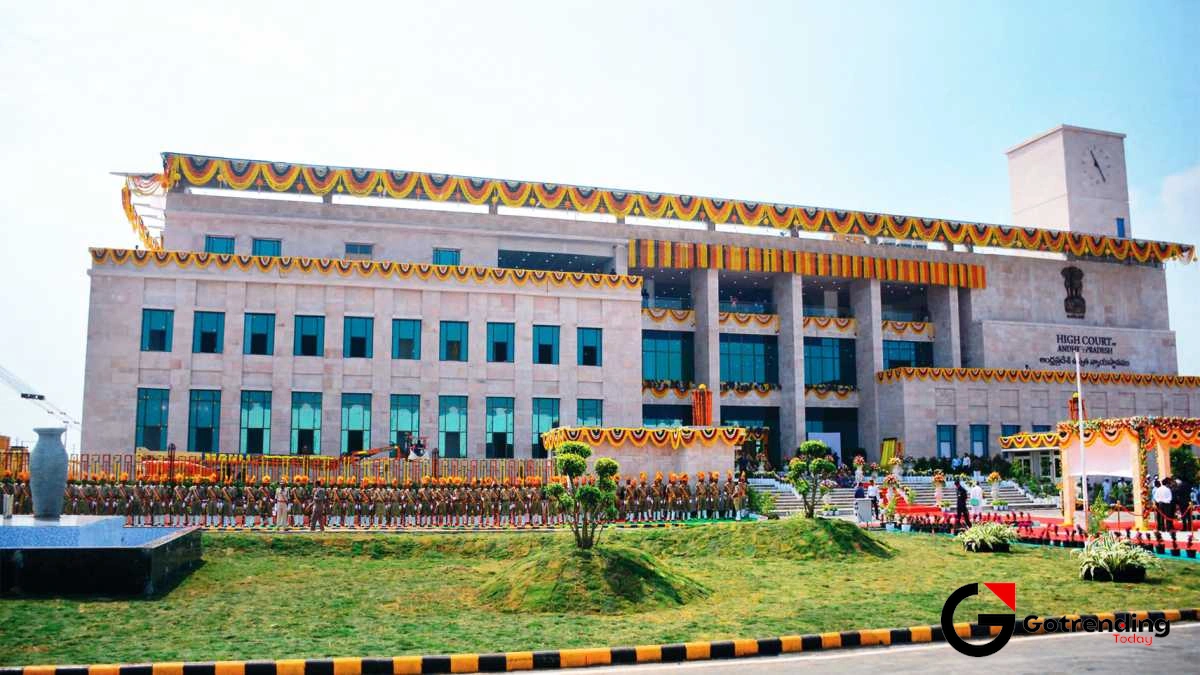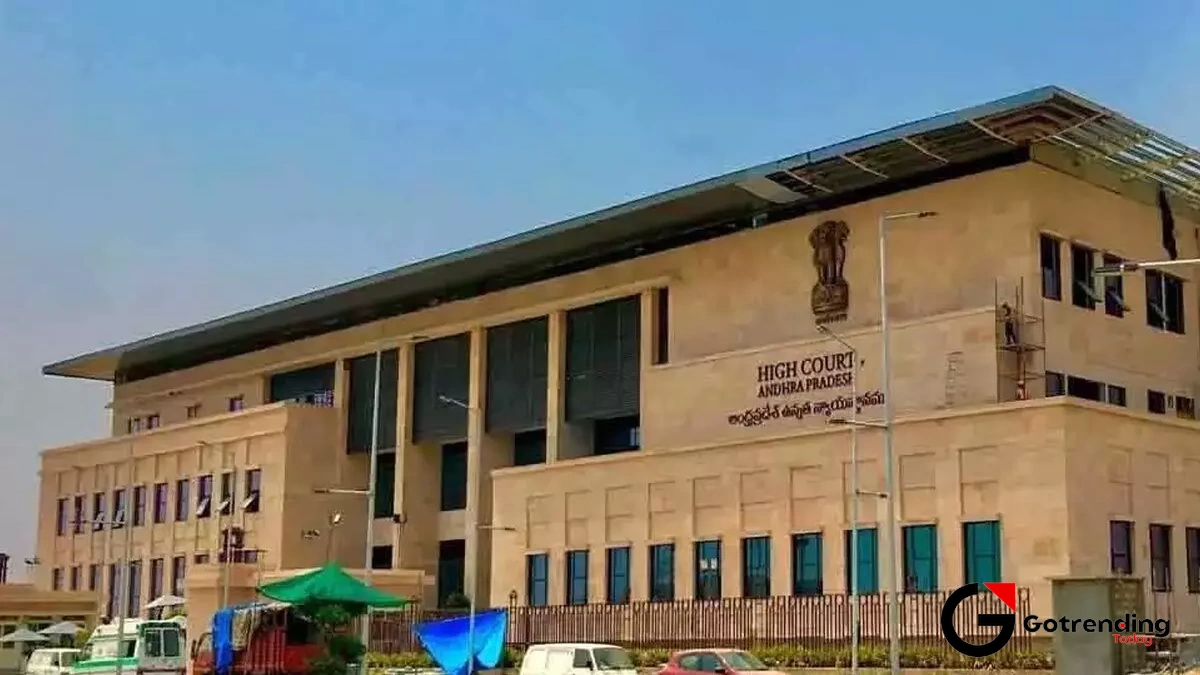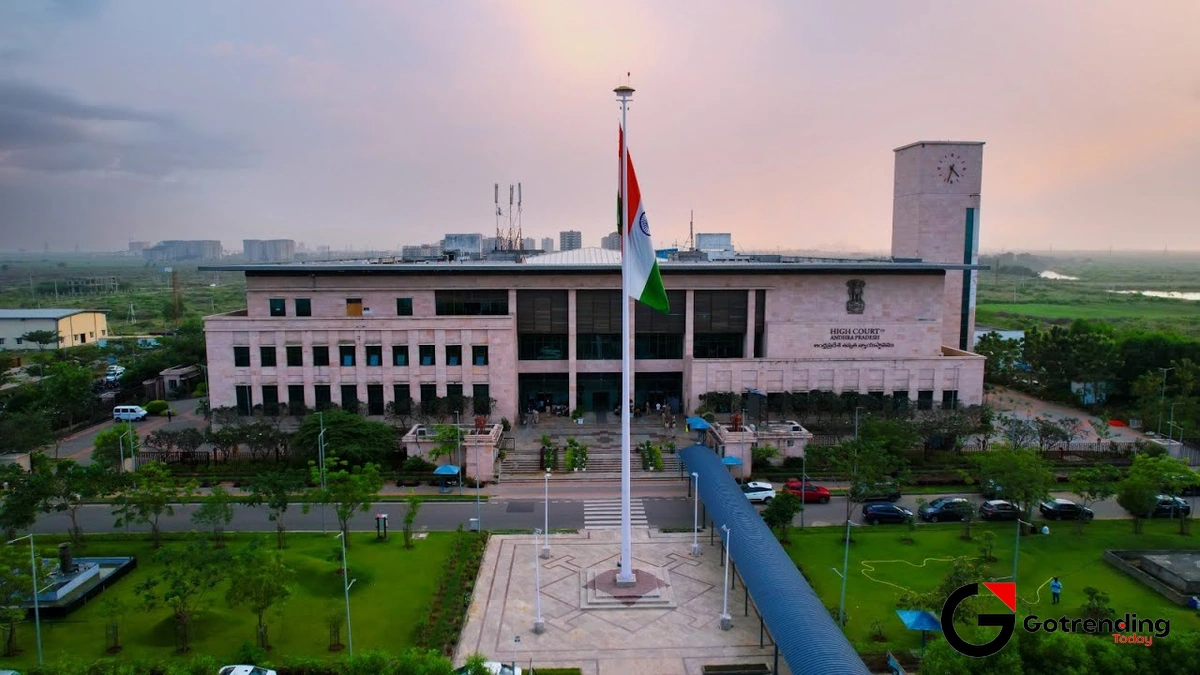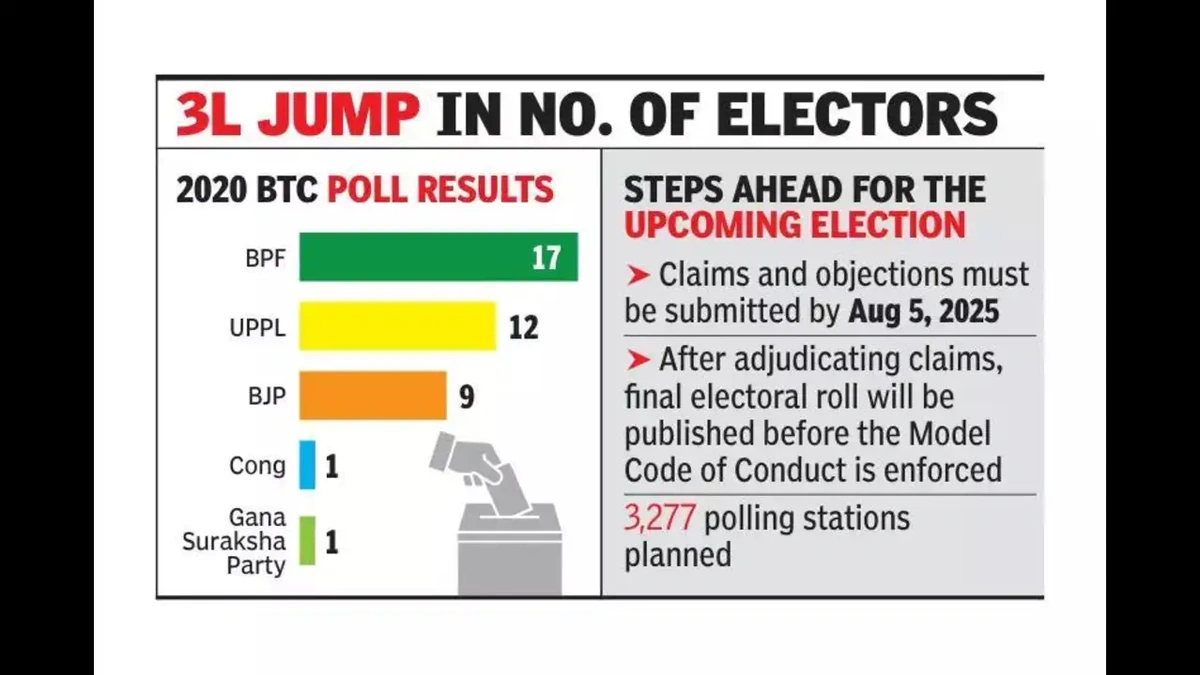The AP High Court Isn’t Just for Lawyers. Here’s Why It’s Shaping Your Everyday Life.
Let’s be honest. When most of us hear “High Court,” our eyes glaze over. We picture stern-faced judges in black robes, mountains of dusty files, and lawyers speaking a language that sounds vaguely like English but makes zero sense. It feels distant, complicated, and frankly, not something that has anything to do with our daily lives our jobs, our land, our children’s future.
But what if I told you that the AP High Court , sitting in its impressive new building in Amaravati, is one of the most powerful and active forces shaping your reality in Andhra Pradesh right now? What if I said its decisions have a more direct impact on your life than you could possibly imagine?
Forget the jargon for a moment. Think of the court not as a dusty old institution, but as a referee in a high-stakes game. A game where the players are powerful the government, massive corporations, political parties but the rules are the Constitution. The court’s job is to blow the whistle when a player steps out of bounds. And recently, in Andhra Pradesh, that whistle has been blown. A lot.
So, grab your coffee. Let’s pull back the curtain and talk about why the Andhra Pradesh High Court is a story you absolutely need to follow. This isn’t just about law; it’s about power, promises, and the very future of the state.
A Tale of Two Capitals | How a Court Became the Referee in a Political Super-Bowl
You can’t talk about the AP High Court’s recent significance without diving headfirst into the “three capitals” saga. It’s the political drama that has defined Andhra Pradesh for the last few years. But in the middle of all the political noise and back-and-forth, the High Court played a fascinating, and crucial, role.
Here’s the thing, stripped of all the complexity. The previous government had a grand plan for a single, massive capital: Amaravati. Land was pooled from thousands of farmers with promises of a prosperous future. Then, a new government came in with a different vision: decentralization, with three capitals for different functions (Executive in Visakhapatnam, Legislative in Amaravati, and Judicial in Kurnool).
So, who’s right? That’s where it gets interesting. This wasn’t a question for a political debate on a TV channel; it became a question for the court. The farmers who gave up their land filed petitions. They argued that the government had broken a legal promise, one enshrined in the AP Capital Region Development Authority (CRDA) Act. The legal battle that followed was epic. The court had to examine the AP Reorganisation Act, the very law that created the state of Telangana and left Andhra Pradesh without a capital. It wasn’t just interpreting a law; it was defining the power of a state government to reverse the policy of a previous one, especially when it involves legally binding agreements with thousands of citizens. It was a classic case of what happens when a political checkmate move meets the immovable object of the law.
In its landmark judgement, the High Court essentially sided with the farmers, directing the government to honour the CRDA Act and develop Amaravati as the capital. While the government has since moved this battle to the Supreme Court, the High Court’s ruling was a powerful statement. It said that governance is a continuous process, and promises made under the law can’t be washed away with a change in political power. For the average person, this is monumental. It means there’s a backstop. It means that the foundation of law and order, and the commitments made by the state, are protected by an independent body. This is the AP High Court acting as the ultimate guardian of the rule of law.
Beyond the Headlines | The Quiet Rulings That Affect Your Wallet and Rights

While the three capitals issue grabbed all the headlines, the real, everyday magic of the High Court happens in quieter courtrooms, dealing with issues that are far from abstract.
What fascinates me is the sheer breadth of cases that directly impact ordinary people. Let’s break it down:
- Your Land, Your Rights: Imagine the government wants to acquire your family’s ancestral land for a new project. The compensation offered feels unfair. Where do you go? For many, the High Court is the last line of defense, ensuring that land acquisition is done fairly and as per the law, not on the whims of an official.
- The Battle for Jobs and Pensions: Thousands of cases filed in the amaravati high court are “service matters.” This is jargon for disputes related to government employment—unfair dismissals, delayed promotions, incorrect pension calculations. For a government employee or a pensioner, a favorable ruling from the court isn’t just a legal victory; it’s financial security, it’s dignity, it’s their livelihood.
- The Power of the PIL: This is one of the most potent tools a citizen has. A Public Interest Litigation (PIL) allows any person to bring a matter of public importance to the court’s attention. Is a factory polluting your local river? Are government schools in your district lacking basic facilities? A PIL can force the government to act. It transforms the court from a place that resolves private disputes to a proactive protector of community rights. We’ve seen PILs filed for everything from environmental protection to ensuring government schemes, like the Kalyana Lakshmi Scheme and its equivalents, are implemented correctly.
So, while the political dramas are captivating, it’s these seemingly smaller cases that truly showcase the court’s role as a shield for the individual against a powerful state machinery.
The Court as an Institution | A Symbol of Stability

The journey of the High Court of Andhra Pradesh is, in itself, a reflection of the state’s own tumultuous history. After the state’s bifurcation in 2014, it operated temporarily from Hyderabad and then Guntur, before finally moving to its permanent, state-of-the-art complex in Amaravati.
This isn’t just about a new building. A permanent, fully functional High Court is a powerful symbol. It signifies stability, the permanence of the rule of law, and the establishment of a core pillar of democracy in the state’s new capital region. It’s an anchor in a sea of political uncertainty.
For anyone wanting to follow its proceedings, understanding the basics is key. The court publishes a “cause list” daily a schedule of cases to be heard. You can even check the AP High Court case status online through its official portal. This transparency is by design; it’s a cornerstone of an accessible justice system. You can get a feel for its work by visiting theofficial Andhra Pradesh High Court website, which is a surprisingly useful resource.
Frequently Asked Questions about the AP High Court
So, what’s the actual difference between the High Court and the Supreme Court?
Think of it like a ladder. The High Court is the highest court in the state. It handles appeals from lower courts (like district courts) and can hear cases concerning fundamental rights and constitutional law within its territory. The Supreme Court, in New Delhi, is the highest court in the entire country. You can appeal a High Court decision to the Supreme Court, but only in certain cases. The Supreme Court’s decision is final.
Can I just walk into the High Court and file a case myself?
While technically possible to appear as a “party-in-person,” it’s incredibly complex and not recommended. The legal procedures and language are highly specialized. You almost always need to engage a lawyer who is qualified to practice in the High Court. They will draft your petition and argue the case on your behalf.
How can I check the status of a case online?
It’s easier than you think. The official AP High Court website has a “Case Status” or “Case Information System” section. You’ll typically need some basic information like the case number, petitioner’s name, or lawyer’s name to look up the details and see the history of hearings and orders. This is the most reliable way to track ap high court judgements and proceedings.
What exactly is a “writ petition”?
You hear this term a lot. A writ is a formal written order from a court. A writ petition is an application you file asking the High Court to issue one of these orders to protect your fundamental rights. For instance, a writ of ‘Mandamus’ can command a public official to perform their duty, while ‘Habeas Corpus’ can demand that a person who is detained be brought before the court.
The High Court isn’t an impenetrable fortress. It’s a living, breathing institution that runs on rules, evidence, and arguments. And its primary function, above all else, is to serve as the ultimate check on power, ensuring that no one not even the government is above the law.
It’s the silent guarantor of your rights, the final arbiter in disputes, and the unseen force ensuring that the promises enshrined in our constitution are more than just words on paper. Paying attention to the AP High Court isn’t about becoming a legal expert; it’s about understanding the very pulse of your state.













